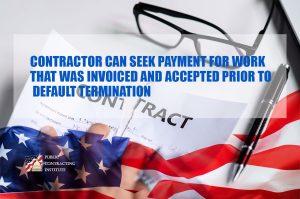Claude Mayo Construction Company, Inc. (“Mayo”) had a contract with the General Services Administration (“GSA”) to renovate a U.S. Attorney’s Office in Syracuse, NY. Before Mayo completed the project, GSA terminated the contract for default. Mayo sought to overturn the default, which is not the subject of this appeal. However, Mayo also sought damages for a breach of contract because GSA, without basis, failed and refused to pay Mayo for work completed and accepted by GSA prior to the default termination. Claude Mayo Const. Co., Inc., No. 15-1263C (Fed. Cl. June 23, 2017).

GSA sought to dismiss the breach of contract, asserting failure to state a claim. The government alleged that Mayo failed to identify a duty arising from the contract or a breach of that duty, and further, that the breach of contract allegation was “subsumed by its improper termination for default claim.”
The Court first noted that Mayo had sufficiently pleaded the existence of a duty arising out of the GSA contract, as well as a breach thereof, when GSA failed to pay proper invoices for work that it had accepted prior to the default termination. The Court noted that failure to pay Mayo for completed work constituted a breach of contract.
Then the Court concluded that Mayo’s breach of contract allegation was not subsumed by its termination for default. The court noted that Mayo’s breach of contract was not based upon the allegedly improper default termination. Rather, it was based on the government’s failure to pay for work it accepted prior to the default termination. Even if the default was proper, and is ultimately upheld by the Court, Mayo might still be entitled to recover on its breach claim.
The takeaway is straightforward: a claim for money properly owed by the Government prior to a termination for default is a valid and viable claim and contract appeal, even if the contract is subsequently terminated for default.

